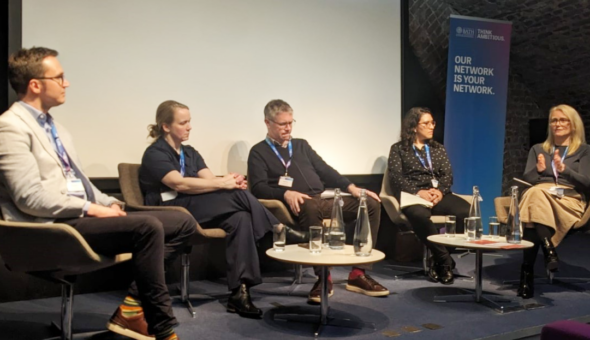Yasin Rofcanin, Mireia Las Heras, Maria Jose Bosch and Marc Grau-Grau organised the recent Conference of Work, Family and Sustainability held by the IESE Business School. Following the success of this event, they reflect on the discussions and offer some insights as to how the recent changes in these areas – in part due to the pandemic - are likely to impact future research and practice.
The ninth International Conference of Work, Family and Sustainability took place on the sixth and seventh of July 2021. For the first time ever, the event was held online. Despite the backdrop of the pandemic, and our resulting screen fatigue, the conference was fun, vibrant, intellectually stimulating and more engaging than ever. The theme of the conference - Work, Family and Sustainability - encouraged all of us to take a step back and reconsider how we will manage our work and family domains, and the interplay between them, in the future.
Here’s what we learned:
- Work and family separation has become a thing of the past.
Work and family are no longer separated. Future research should study work-family integration, and how the interconnectedness of both domains impact wellbeing and health. These will become key topics of interest - indeed, focus is likely to be on the access and provision of resources in the work and family domain, which may be captured with theories such as the Work-Home Resource model or Integrated Model of Energy.
- What happens at home does not stay at home.
Whatever happens in either of the domain (work or family) is likely to shape the dynamics in the other domain. This type of change in research calls for an ‘experience sampling’ approach to data collection, mostly captured in the form of daily or weekly diary studies. Organisations will have to be more mindful of the stresses in the personal lives of their staff, and find some way to address that in the workplace.
- People are not just employees. Organisations must welcome their whole selves in the workplace.
As highlighted in a keynote delivered by Dr. Scott Behson, organizations need to appreciate and acknowledge that employees enter their workplaces with their “whole being”. This new paradigm reflects the idea that organizations are (or should be) responsible for the well-being and satisfaction of their employees in their work and non-work domains, as the two are now inseparable. It is time to talk about what can be done, at organizational and team level, to support and maintain employees who are at different stages in their lives and who would like to thrive in their current workplaces. A holistic perspective to understanding employee needs and preferences is a first and major step to take.
- Care for those who care.
Much research attention has been given to the role of working mothers as the caregivers of children and elderly parents. With the shifting norms and increase in dual earner couples all around the globe, the role of fathers (as well as other less-explored actors across the work-family domain) has garnered some well-earned attention. Important questions around the role of sharing, caring and leadership between members of a couple will need to be investigated as key research themes, considering especially how these reflect back in how working parents adapt to work post-pandemic.
Respond



